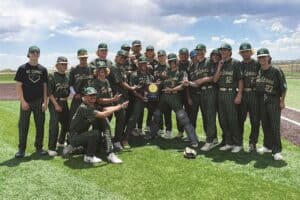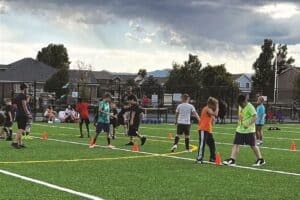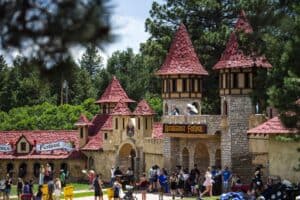To Billy the Kid and his foe, Pat Garrett, the “Code of the West” probably meant something very different that it does to the El Paso County commissioners who adopted a code-of-the-west stance a few years ago, directing it at residents living in the rural and outlying areas of the county.According to the Code of the West citation on the county’s Web site, the men and women who ventured out west a long time ago were bound by an unwritten code of conduct: “The values of integrity and self reliance guided their decisions, actions, and interactions.”The modern-day county Code of the West was somewhat based on keeping with the tradition of that rugged individualism. However, one might question the comparison when today’s harsh rural lifestyle includes stoplights, SUVs, Safeway and Blockbuster’s, Papa Murphy’s and a Super Dry Cleaners.The Code of the West spells out what rural dwellers can expect when they opt to move to the country, and the code outlines the extent of county services the rural dwellers can expect once they have moved.Terry Harris is the El Paso County administrator, and he said the Code of the West does not apply to the urban areas of Falcon, which are defined as the subdivisions or metro districts, like Woodmen Hills. But Falcon residents who live on the “other side” are subject to the code, along with county residents living east of Falcon.”The Colorado Legislature has several laws that reference the rural part of the state,” Harris said. “According to the overall interpretation, anything outside of the city and county of Denver Metro area is considered rural.”Harris said that rural taxes do not equal the services provided to rural residents, regardless of the code. Urban areas subsidize the rural areas, he said.” That’s just the way it is across America, and the city dwellers are willing to do that because of the farm-to-market concept,” Harris said. “If the county doesn’t provide good roads and access, no one is going to eat. Our (county) roads are kept up as best as we can – it’s a matter of budget.”County Commissioner Chuck Brown led the Code of the West charge. “It’s just an information piece, there are no regulatory requirements,” Brown said. “I initiated this because there were many urban people who moved into the rural areas, and they complained about what they were not used to – the animal smells and the animal waste. And they complained that noise from farming equipment disturbed their rest.” Other complaints to the county about snow-packed, blocked and broken roads were plentiful, Brown said. The code was meant to inform county residents that living on the outskirts might mean delays in road clearings and repair, he said.However, that doesn’t mean the county isn’t prepared. Brown said the county has detailed plans in place for snow removal and road maintenance. “The main roads and the bus routes are the first to be cleared,” Brown said. “We are just trying to tell the residents that life on the plains is different from life in the city.The Code of the West addresses the following:
- There is no guarantee that you, your guests and emergency service vehicles will have access to your property at all times. The county maintains nearly 2,000 miles of roads, but many rural roads are serviced by private road associations. Unpaved roads are not likely to be paved in the near future. Mail and newspaper delivery is not available to all areas – the same goes for standard parcel and overnight package delivery.
- Water, sewer, electric, telephone and other services may be unavailable or may not operate at urban standards. Much of the county is on a septic system – leach fields are important in determining the cost and function of the system.
- Property issues like building and zoning codes, easements, mineral rights, boundaries and water rights should be researched before purchasing properties
- The physical characteristics of the property should be assessed in the event Mother Nature interferes with the health and well being of a property’s inhabitants – not just the humans. The rural area is prone to all kinds of wildlife that can be dangerous to small farm animals and pets.LI> Farmers work day and night. It is possible that one’s farming neighbors can disturb the peace and quiet. Colorado has an open law – if you do not want cattle, sheep or other livestock on your property, it is your responsibility to fence them out. And there is the dust.
The modern-day county Code of the West was somewhat based on keeping with the tradition of rugged individualism. However, one might question the comparison when today’s harsh rural lifestyle includes stoplights, SUVs, Safeway and Blockbuster’s, Papa Murphy’s and a Super Dry Cleaners.
For Code of the West details, visit the county Web site at www.elpasoco.com.







